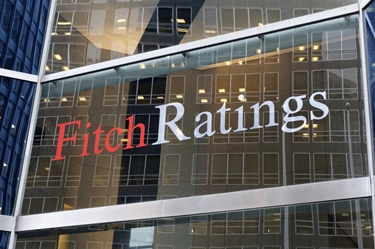Fitch Ratings has upgraded Turkmenistan’s Long-Term Foreign-Currency (LTFC) Issuer Default Rating (IDR) to ‘BB-‘ from ‘B+’. The Outlook is Stable. Here is a summary of the commentary by Fitch ratings:
Key Rating Drivers
The upgrade reflects the following key rating drivers and their relative weights:
HIGH
Strengthened Sovereign Balance Sheet: There has been a further improvement in Turkmenistan’s already exceptionally strong sovereign balance sheet, and Fitch has greater confidence this will be preserved. The government has exercised markedly more expenditure discipline than in previous cycles of high energy prices, and it is anticipated that the fiscal position to remain close to balance through 2026. Fitch forecasts sovereign net foreign assets (SNFA) to increase to 55.9% of GDP at end-2024, from 54.7% in 2023 (and 45.1% in 2022), the highest in the peer group.
Extremely Large External Reserves: Turkmenistan’s foreign-exchange (FX) reserves have continued to increase, estimated by Fitch at near 55 months of current external payments (CXP) versus the ‘BB’ median of 4.5 months. Fitch projects a moderation in the pace of SNFA growth through 2026 driven by a narrowing current account surplus, to 1.4% of GDP in 2026, from 5.3% in 2023, on lower global energy prices. Fitch forecasts a further improvement in external liquidity, with external debt service falling to 6.9% of current external receipts in 2025, from 8.5% in 2023, well below the current ‘BB’ median of 12.2%.
Balanced Fiscal Position: Fitch projects a general government surplus of 0.2% of GDP in 2024, close to the 2021-2023 average of 0.4%. This incorporates solid growth in non-energy tax receipts (which rose 9.1% in 1H24), offsetting lower natural resources revenue and a rise in capex from the rollout of phase 2 of Arkadag “smart” city. Fitch forecasts the fiscal balance to move into a small deficit, of 0.5% of GDP, in 2026, partly reflecting a lower oil price (of USD65/barrel), which is the main reference price for Turkmen gas contracts.
Very Low Public Debt: General government debt is projected to fall to 2.9% of GDP at end-2026, from 3.8% at end-1H24 (and 10.6% in 2021 when Turkmenistan was assigned first rating, at ‘B+’), the lowest in the ‘BB’ peer group (median 53.1%). Fitch assumes debt to remain entirely foreign-currency denominated, in line with the government’s strategy since it prepaid all outstanding domestic debt in 2022.
Sizeable Fiscal Buffer: Fitch forecasts the Turkmenistan Stabilization Fund (entirely local currency-denominated) to end 2024 at near TMT32 billion (11% of GDP), up from TMT26.6 billion at end-2022, around half of which are fiscal deposits held at the central bank.
Factors that Could, Individually or Collectively, Lead to Positive Rating Action/Upgrade
– Macro: Improved credibility and consistency of economic policy that reduces macroeconomic distortions and enhances the capacity of the economy to absorb shocks.
– Structural: An improvement in governance standards, the availability and reliability of key official economic data, and/or the business environment, likely to be underpinned by policies to open the economy.
– Public/External Finances: Additional sharp improvement in the public and external balance sheet, for example, reflecting persistently high prices of key hydrocarbon exports or greater export capacity and/or greater transparency of fiscal policy and the public-sector balance sheet.
The full report is available here: https://www.fitchratings.com/research/sovereigns/fitch-upgrades-turkmenistan-to-bb-outlook-stable-02-08-2024 ///nCa, 5 August 2024
